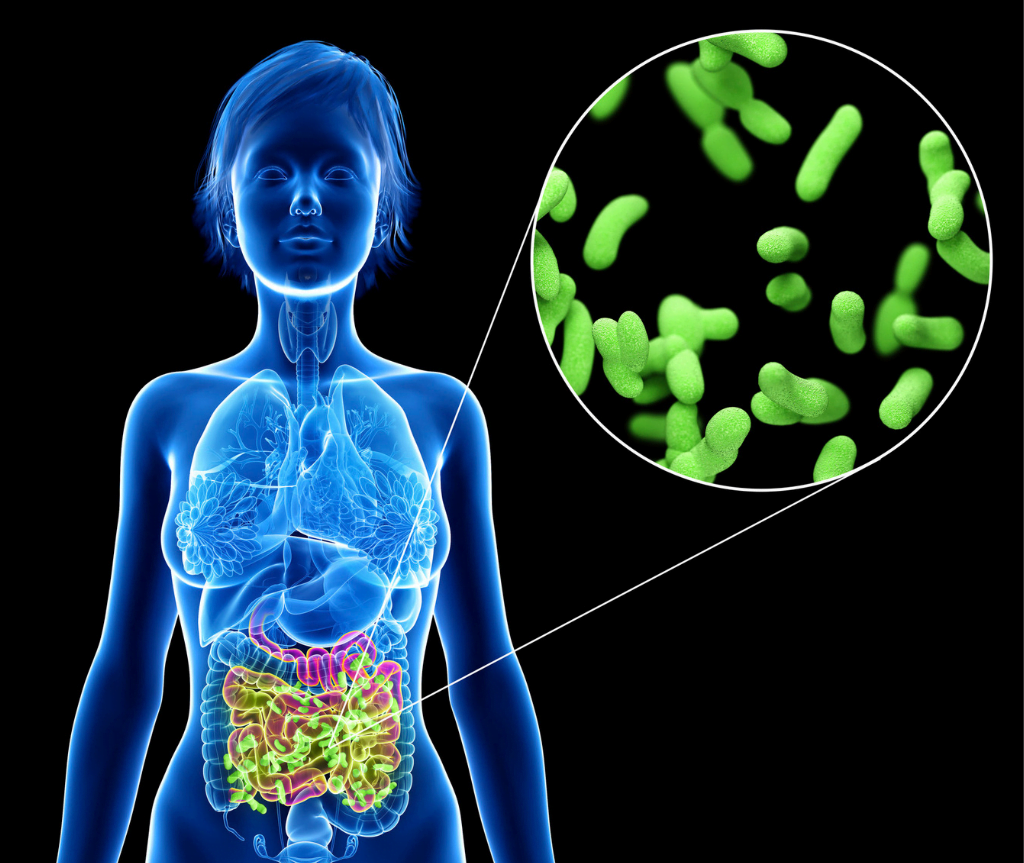Inflammation is a natural body response to injury or infection, but it can lead to various health problems when it occurs repeatedly. The gut microbiome, the collection of microorganisms in the gut, has been found to play a crucial role in preventing inflammation.
In this article, we’ll explore the surprising anti-inflammatory powers of gut bacteria and how to harness them for better health.
The Importance of Gut Bacteria
The gut microbiome, the collection of microorganisms in the digestive system, plays a crucial role in our overall health. They help to digest food and support the immune system. They also play a role in regulating inflammation in the body. A healthy gut microbiome can help prevent chronic inflammation and reduce the risk of various health problems.
Having a balanced gut microbiome helps control the immune system and stops long-lasting inflammation by,
- Breaking down fibre: The gut microbiome helps to ferment fibre into short-chain fatty acids, which provide energy for the gut and support a healthy gut lining.
- The friendly organisms in the gut regulate the immune system by preventing overactivity and reducing inflammation.
- Preventing harmful bacteria overgrowth: A healthy gut microbiome helps to keep harmful bacteria in check and prevent them from causing inflammation and other health problems.
- Producing anti-inflammatory compounds: Some gut bacteria can produce anti-inflammatory compounds that help to reduce inflammation and support overall health.
The Gut-Inflammation Connection
Maintaining a robust immune system requires a well-functioning gut
The gut microbiome helps regulate the immune system by producing short-chain fatty acids, promoting the growth of good bacteria, and preventing harmful bacteria from colonizing.
The gastrointestinal tract also has many immune cells that monitor the gut for pathogens and respond to threats. Additionally, the gut lining acts as a barrier to prevent harmful substances from entering the bloodstream and causing inflammation.
A healthy gut microbiome helps ensure that the gut and immune system work together to prevent inflammation and maintain overall health.
How gut microbiome promotes anti-inflammation
The evidence suggests the gut microbiome offers anti-inflammation through several mechanisms:
- Balance the immune system and prevent overactive responses that lead to inflammation.
- Gut bacteria produce short-chain fatty acids (SCFA) such as acetate, propionate and butyrate. These SCFAs have anti-inflammatory effects and help maintain the health of the gut lining.
- Preventing harmful bacteria from colonizing: A healthy gut microbiome helps to prevent harmful bacteria from colonizing and causing inflammation.
- Stimulating the production of anti-inflammatory cytokines: Gut bacteria can stimulate the production of anti-inflammatory cytokines, which help to reduce inflammation throughout the body.
- Improving gut barrier function: The gut microbiome helps to maintain the integrity of the gut lining, which acts as a barrier to prevent harmful substances from entering the bloodstream and causing inflammation.
The Anti-Inflammatory Powers of Probiotics
Probiotics play an important role in enhancing the immune system. These beneficial bacteria, commonly found in fermented foods like yoghurt and kefir or taken as supplements, help to balance the gut microbiome.
A healthy gut microbiome regulates the immune system and prevents inflammation. Studies have shown that consuming probiotics can increase the number of immune cells in the gut. This improves the barrier functions of the gut lining and stimulates the production of antibodies.
Additionally, probiotics have positively impacted the immune system’s response to infections and vaccinations. Incorporating probiotics into your diet can help strengthen your immune system and reduce the risk of illness.
The Bottom Line
This article helps unlock the anti-inflammatory powers of gut bacteria and take control of your health. The gut microbiome is crucial in preventing inflammation, a driving force behind numerous chronic diseases.
Maintaining a healthy gut microbiome through a balanced diet is important. So, adding foods rich in fibre, probiotics, and prebiotics is the key. This reduces the risk of chronic inflammation and improves overall health.
The gut microbiome contains beneficial anti-inflammatory bacteria, making it a powerful tool for managing health. By prioritizing gut health through proper nutrition, individuals can harness the power of gut bacteria to promote wellness and prevent disease.



